 |
King of Chemicals Manufacturers |
Specifications, Properties, Uses, SDS of Glucose Anhydrous BP Ph Eur Analytical Reagent Food Grade Manufacturer Supplier Exporter Wholesale & Small Packs, CAS Number 50-99-7. |
|
| King of Chemicals has several associated companies having accreditations like cGMP, GLP - FDA Approved Good Manufacturing Practice and Good Laboratory Practice of WHO standard, ISO-9001, ISO-14001, ISO/IEC 17025, ISO ISO-45000, HACCP, FSSC 220000, FSSAI, "REACH" Registered, Kosher & Halal Certified. e-CTD and DMF support can be made available if needed. We offer USP NF BP Ph Eur EP IP JP Analytical Reagent FCC Food Grade Chemicals & Nutraceuticals. | |
        |
|
Muby Chem Pvt. Ltd. is a several decades old group of companies, engaged in manufacturing, supplying, distributing, wholesale supplies of Glucose BP Ph Eur Analytical Reagent Food Grade for actual users, including retail or small pack supplies for research and development work.
We supply fine and speciality chemicals, pharmaceutical excipients, mineral fortifiers in chemically pure, analytical reagent grade, IP BP USP Ph Eur EP JP and other pharmaceutical grade monograph including FCC Food grade chemicals and Nutraceuticals at best prices. We and/or our associated units have all the facilities to supply as per cGMP standard observing good manufacturing practice and good laboratory practice. We can assure low microbial count and also offer a test certificate for the same. We maintain warehouses across USA, India, and UAE. Our group exports to USA, Canada, Mexico, Argentina, Brazil, Chile, Korea, Malaysia, Thailand, Indonesia, Europe, and several other parts of the world. We supply in wholesale container loads to small pack of few grams. Solid products may be specified for it size and shape as desired by the buyer.
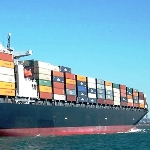

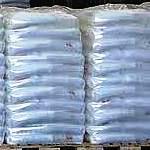
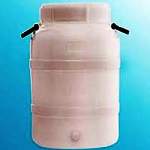
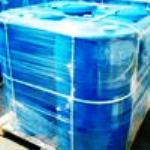
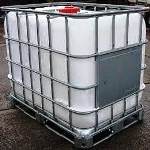
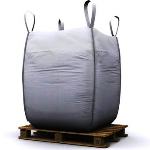

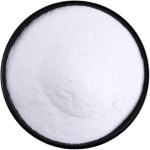
Glucose CAS Number 50-99-7
Also check our page Dextrose
For Properties Specifications Uses of Glucose Anhydrous Click Properties, Specifications, Uses, Price, Process of Glucose Anhydrous Manufacturer.
For For SDS MSDS Sheet of Glucose Anhydrous Click SDS Safety Data Sheet MSDS Sheet of Glucose Anhydrous Manufacturer.
The Properties, Specifications, Monograph and Uses of Glucose Anhydrous:
Glucose BP Ph Eur Grade Specifications:
Anhydrous Glucose
C6H12O6 -- 180.2 -- 50-99-7
DEFINITION
D-Glucopyranose.
It is derived from starch.
Content: 97.5 per cent to 102.0 per cent (anhydrous substance).
CHARACTERS
Appearance: White or almost white, crystalline powder.
Solubility: Freely soluble in water, very slightly soluble in ethanol (96 per cent).
IDENTIFICATION
First identification: A, B, E
Second identification: C, D
A. Specific optical rotation: + 52.5 to + 53.3 (anhydrous substance).
B. Examine the chromatograms obtained in the assay.
C. Thin-layer chromatography.
D. Dissolve 0.1 g in 10 mL of water. Add 3 mL of cupri-tartaric solution and heat. A red precipitate is formed.
E. Water (see Tests).
TESTS
Appearance of solution: The solution is clear and not more intensely coloured than reference solution. Dissolve 10.0 g in 15 mL of water, heating on a water-bath.
Conductivity: Maximum 20 µS⋅cm-1.
Dissolve 20.0 g in carbon dioxide-free water prepared from distilled water and dilute to 100.0 mL with the same solvent. Measure the conductivity of the solution while gently stirring with a magnetic stirrer.
Related substances: To pass the test by liquid chromatography.
Dextrin: To 1 g of the finely powdered substance to be examined add 20 mL of ethanol (96 per cent) and heat under a reflux condenser. The substance dissolves completely.
Soluble starch, sulfite: Maximum 15 ppm.
Water: Maximum 1.0 per cent, determined on 0.50 g.
Pyrogens: If intended for use in the manufacture of large-volume parental preparations without a further appropriate procedure for the removal of pyrogens, the competent authority may require that it complies with the test for pyrogens. Inject per kilogram of the rabbit′s mass 10 mL of a solution in water for injections containing 50 mg of the substance to be examined per milliliter.
D-Glucose, Anhydrous Analytical Reagent Grade Specifications
Dextrose, Anhydrous
CH2OH(CHOH)4CHO -- Formula Weight 180.16
CAS Number 50-99-7
REQUIREMENTS
Specific rotation: +52.5 to +53.0
MAXIMUM ALLOWABLE
Insoluble matter 0.005%
Loss on drying at 105C: 0.2%
Residue after ignition: 0.02%
Titrable acid: 0.002 meq/g.
Chloride (Cl): 0.01%
Sulfate and sulfite (as SO4): 0.005%
Starch: Passes test.
Heavy metals (as Pb): 5 ppm.
Iron (Fe): 5 ppm.
The MSDS-SDS Hazard Statement of Glucose Anhydrous:
Anhydrous Glucose SDS, Safety Data Sheet
MSDS Sheet, Material Safety Data Sheet 20-Mar-25
Section 1: Chemical Product and Company Identification
Product Name & Other Names: Anhydrous Glucose.
CAS Number: 50-99-7 for anhydrous and 5996-10-1 for monohydrate
EINECS EC Code: 200-075-1
Relevant uses and uses advised against (if any): Industrial Manufacturing.
Section 2: Hazards Identification
GHS, Globally Harmonized System Classification in accordance with 29 CFR 1910
Hazard Class and Category Code(s), Regulation (EC) No 1272/2008 (CLP)
Not a hazardous substance or mixture according to Regulation (EC) No. 1272/2008.
This substance is not classified as dangerous according to Directive 67/548/EEC.
Labeling Regulation EC 1272/2008 (CLP) & GHS
GHS Label Elements NONE |
Signal Word: None
Hazards not otherwise classified (HNOC):
May causes mild skin irritation.
May causes mild eye irritation.
Precautionary statements:
P261: Avoid breathing dust/fume/gas/mist/vapors/spray.
P262: Do not get in eyes, on skin, or on clothing.
P281: Use personal protective equipment as required.
P302+P352: IF ON SKIN: Wash with plenty of soap and water.
P304+P340: IF INHALED: Remove victim to fresh air and keep at rest in a comfortable position for breathing.
P305+P351+P338: IF IN EYES: Rinse cautiously with water for several minutes. Remove contact lenses, if present and easy to do. Continue rinsing.
P337+313: If eye irritation persists get medical advice/attention.
Section 3: Composition and Information on Ingredients
Product Name & Other Names: Anhydrous Glucose.
CAS Number: 50-99-7 for anhydrous (5996-10-1 for monohydrate)
EINECS EC Code: 200-075-1
Section 4: First Aid Measures
Always seek medical advice after the first aid treatment.
Skin: Rinse with water. Soap may be used. Seek Medical Aid.
Eyes: Wash eyes with plenty of water for at least 15 minutes, lifting lids occasionally. Seek Medical Aid.
Inhalation: Remove to fresh air. If not breathing, give artificial respiration. If breathing is difficult, give oxygen.
Ingestion: If swallowed, induce vomiting immediately after giving two glasses of water. Never give anything by mouth to an unconscious person.
Section 5: Fire and Explosion Data
Flammability of the Product: Non-flammable.
Products of Combustion: Oxides of Carbon.
Fire Fighting Media and Instructions: Use water spray, alcohol-resistant foam, dry chemical, or carbon dioxide. Wear self-contained breathing apparatus for firefighting if necessary.
Special Information: In the event of a fire, wear full protective clothing and NIOSH-approved self-contained breathing apparatus with full face piece operated in the pressure demand or other positive pressure mode. At high temperatures under fire conditions, it may produce toxic or irritating fumes.
Section 6: Accidental Release Measures
Personal precautions, protective equipment, and emergency procedures: Avoid breathing dust/fumes/gas/mist/vapors/spray. Use individual protective equipment (waterproof boots, suitable protective clothing, safety glasses, etc.). Restrict unprotected personnel from the area.
Environmental precautions: Do not let the product enter drains, soil, or water sources.
Methods and materials used for containment cleanup procedures and Storage:
Do not inhale dust, vapors, mist, or gas. Avoid dust formation. Contain spilled material. Cover with an inert, non-combustible absorbent material, (e.g., sand, earth, diatomaceous earth, vermiculite). Use a shovel to put the material into a convenient waste disposal container.
Section 7: Handling and Storage
Precautions for safe handling: Apply according to good manufacturing and industrial hygiene practices. Ensure proper ventilation. In case of insufficient ventilation, wear suitable respiratory equipment. Wash thoroughly after handling it. Do not drink, eat, or smoke while handling. Avoid contact with skin, eyes, and clothing. Minimize dust generation. Avoid breathing dust/fumes/gas/mist/vapors/spray. Keep the container tightly closed. Avoid ingestion and inhalation. Use individual protective equipment (waterproof boots, suitable protective clothing, safety glasses, etc.).
Conditions for safe storage, including any incompatibilities: Store in cool, dry, and ventilated area away from heat sources and protected from sunlight in tightly closed original container. Keep air contact to a minimum. Store protected from heat, sparks and ignition sources and incompatible materials. Avoid inhalation of dust/mist/vapor. Do not store with incompatible materials like strong oxidizing agents.
Section 8: Exposure Controls/Personal Protection
Engineering Controls: Use process enclosures, local exhaust ventilation, or other engineering controls to keep airborne levels low.
Ventilation System: A system of local and/or general exhaust is recommended to keep employee exposures as low as possible.
Personal Respirators (NIOSH Approved): For conditions of use where exposure to dust or mist is apparent and engineering controls are not feasible, a particulate respirator may be worn.
Skin Protection: Wear protective gloves and clean body-covering clothing.
Eye Protection: Use chemical safety goggles and/or full face shield where dusting or splashing of solutions is possible. Maintain eye wash fountain and quick-drench facilities in work area.
Other Control Measures: Maintain good housekeeping in work area. Handle in accordance with good industrial hygiene and safety practice. Wash hands after handling.
Section 9: Physical and Chemical Properties
Physical state and appearance: Solid white powder or crystals.
Odor: Not available.
Odor threshold: Not available.
pH: Not available.
Relative density: Not available.
Melting point/freezing point: Melting point/range: 146C
Initial boiling point and boiling range: Not available.
Flash point: Not available.
Auto-ignition temperature: Not available.
Decomposition temperature: Not available.
Upper/lower flammability or explosive limits: Not available.
Vapor pressure: Not available.
Vapor density: Not available.
Evaporation rate: Not available.
Flammability (solid, gas): Not available.
Partition coefficient: n-octanol/water: Not available.
Solubility: Soluble in water.
Viscosity: Not available.
Section 10: Stability and Reactivity Data
Stability: It is stable in room temperature in closed containers under normal storage & handling.
Incompatibility with various substances: Avoid high temperatures, sparks, open flames, and moisture. Avoid contact with strong oxidizing agents.
Polymerization: Will not occur.
Section 11: Toxicological Information
LD50 Oral - Rat - 25800 mg/kg
Carcinogenicity: No component of this product present at levels greater than or equal to 0.1% is identified as possible or confirmed human carcinogen by IARC, ACGIH, OSHA and NTP.
Teratogenic Effects: Not available.
Mutagenic Effects: Not available.
Developmental Toxicity: Not available.
Reproductive Effects: No data available.
Section 12: Ecological Information
Toxicity to fish: No information available.
Persistence and Degradability: No data available.
Mobility: No data available.
Bioaccumulation/ Accumulation: No data available.
Results of PBT and vPvB assessment: No data available for assessment.
Section 13: Disposal Considerations
Waste Disposal: Waste must be disposed of in accordance with federal, state, and local environmental control regulations.
Section 14: Transport Information
DOT USA, TDG Canada & ADR/RID Europe: Not regulated.
IMDG/IMO & IATA/ICAO: Not regulated.
Section 15: Other Regulatory Information
USA Regulations:
SARA 311/312 Hazards: No SARA Hazards
California Prop 65: California No Significant Risk Level: None of the chemicals in this product are listed.
Section 16 - Additional Information
Disclaimer:
Our company provides this SDS information contained herein in good faith but makes no representation as to its comprehensiveness or accuracy. This MSDS sheet is intended only as a guide to the appropriate precautionary handling of the material by a professionally trained person using this product. Individuals receiving the information must exercise their independent judgment in determining its appropriateness for a particular purpose.

Glucose Anhydrous Manufacturers, Suppliers, Exporters, Wholesalers:
King of Chemicals manufacturers

Plot No. 2900/46&47 + 2900/163to167, GIDC, Ankleshwar, Dist. Bharuch, India
India, USA, UAE
TEL: (Office) 91-22-23774610, 91-22-23723564
e-mail: info@kingofchemicals.com
Copyright and Usual Disclaimer is Applicable --- April 7, 2025
If I give you “My Word” Nobody can undo it.
If I sign an “Agreement” my Lawyer will undo it
Our products are for industrial and laboratory use only. The user must test the material before use. We are not dispensing chemists or druggist and do not offer over the counter type (OTC) products for medical use by individuals.
We and our associates manufacture pure chemicals surpassing Monograph Specifications of Analytical Reagent Standards, British & European Pharmacopoeia BP Ph Eur EP Standard, US Pharmacopoeia USP NF Standard, Indian Pharmacopoeia IP Standard, Japan Pharmacopoeia JP Standard, FCC Food Grade Standard. |
|